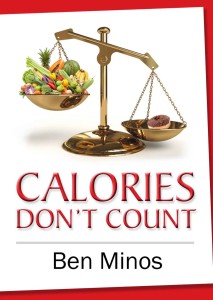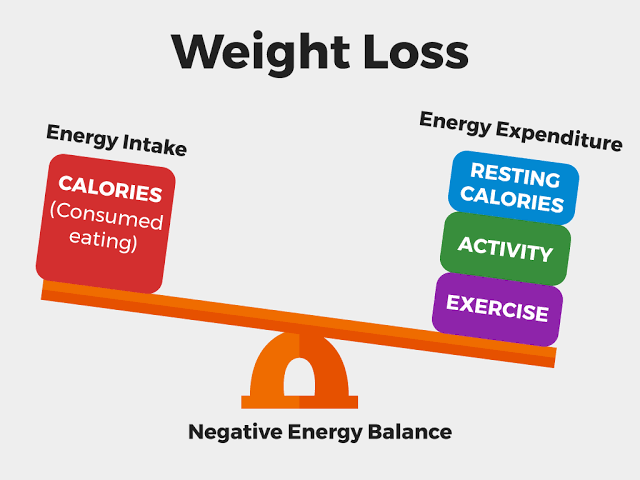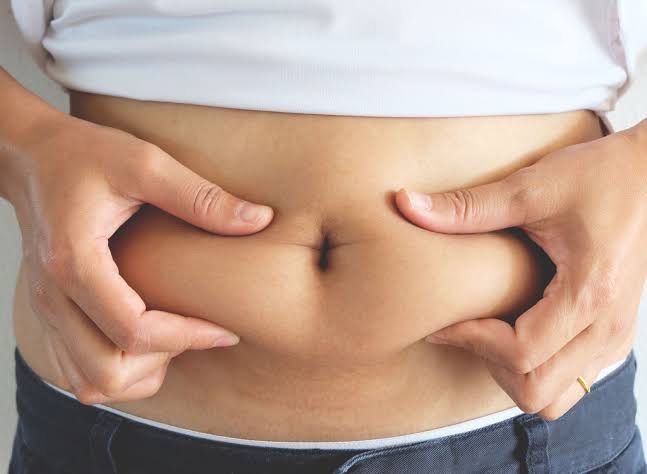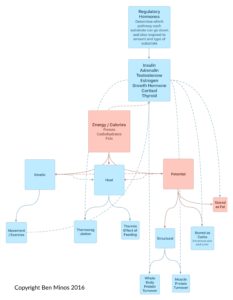How do you go about creating the ultimate fat loss environment?
If you remember last week, overeating on fats and carbs (especially simple sugars that elevate insulin) as well as stressing and not sleeping, was a one way ticket to Fatsville. Think middle aged person, white collar, high pressure job with kids. They may eat out at corporate lunches a lot and also drink alcohol.
Stress. No sleep. Lots of bad food. That’s the perfect crap storm for depressing all the good hormones and peaking on all the bad ones right there! I don’t care if calories are over or under your maintenance, no one looks good on that kind of lifestyle.
So, as discussed last week, you need to limit all of the things that make you fat.
Conversely to that, what are the most effective things you can do that are going to strip fat the quickest? You know, besides avoiding the above. Or better yet, what should you be doing instead??
Remember how the “Fasting State” was kind of good for fat loss? But there was also some bad stuff too?
|
Fed State
|
Fasted State
|
| Insulin |
Glucagon |
| Lipoprotein Lipase |
Hormone Sensitive Lipase |
| Increased Leptin |
Decreased Leptin |
| Decreased Ghrelin |
Increased Ghrelin |
| Increases Thyroid |
Decreases Thyroid |
| Decreased Growth Hormone |
Increased Growth Hormone |
| Increased Serotonin |
Decreased Serotonin |
And when it came to stress?
|
Chronic Stress
|
Acute Stress (Exercise)
|
| Increased Cortisol |
Increased Adrenalin |
| Increased Adrenalin (chronic) |
|
| Decreased Growth Hormone |
Increased Growth Hormone |
| Decreased Testosterone |
Increased Testosterone |
| Increased Ghrelin |
|
What is the ideal fat loss hormone scenario? As usual, control the bad, enhance the good.
- Control Insulin and Stimulate HSL
- Promote Short Term Adrenalin
- Keep Thyroid Stimulated
- Increase Testosterone
- Increase Growth Hormone
- Optimise Melatonin and Serotonin
- Increase Leptin and Decrease Grehlin
- Control Cortisol
What are the optimal hormones to maximise fat loss? And how do you eat to create this? Not only that, what other lifestyle factors can you focus on to make sure you are stripping your fat to your bodies fullest potential?
Bear in mind, we are discussing the above factors mainly in terms of how they influence your fat cells. Not necessarily some of the other important biological functions and effects these have on your physiology.
We will touch on a few other important factors in this discussion too. Factors such as: stimulating Muscle Protein Synthesis, Thermic Effect of Feeding, micronutrient make up, etc. As I’ve tried to make clear from the start, this whole process is anything but simple. Everything is extremely complex and interactive. There are not only different macronutrients with different energy yields, hormonal, enzymatic and thermic processes. There is also an intricate interplay between the different processes that affect your results.
Have you glazed over yet? Does it sound too complicated already? Don’t be put off though. The answer is so freakishly simple.
What I do want you to do is to ALWAYS keep these things in the back of your mind during any discussion. It doesn’t matter what diet, etc, you adhere to, there are a few base universal principles that any good diet should deliver on.
What you will find in any case, the diets that deliver on all or as many of these things as possible, also happen to work well to stimulate muscle protein synthesis, which also serve to give you maximum nutrient density, which also…and so on and so on.
But first…just need to air some dirty laundry a little.
Should you go High Carb / Low Fat? Or Low Carb / High Fat?
Oh yes. That old chestnut. The diet question for the ages. And ultimately the question that pisses me off the most. When did it come to that anyway?
Do I go HCLF or LCHF? Should I go 60% carb 20% fat? Or go 10% carb 80% fat? (If you do either of these by the way, you are beyond help)
Short answer is NEITHER. Adequate carb. Adequate fat. For what you are trying to do.
It’s like arguing if Pippin or Rodman were the bigger key to the Bulls championships. Motherf#cker it was JORDAN all along!! He da real MVP. But he still couldn’t have done it without them.
Scientists and the public constantly in a pissing contest over who holds the upper hand, while protein sits there with a wry smile thinking “I’ll let these knob jockeys fight amongst themselves”
Protein is the key (Protein is Jordan, by the way. Just in case you couldn’t keep up). First rule of fat club. Make sure you are getting enough protein.
There is one thing I will say on the fat vs carb debate. When it comes to FAT LOSS. For the same calorie intake, the lower carb version works better. Even when fluid, etc is taken in to account. Scientists even gave this phenomena a name. The metabolic advantage. I’m not going to say Google it like some internet guru’s who can’t be bothered to answer legitimate questions. But the metabolic advantage of this kind of diet should already be obvious if you have been paying attention to ANYTHING I’ve been saying in the first seven parts of the series.
How Do You Optimise MPS (Muscle Protein Synthesis)
Whether you are trying to lose fat or “bulk”. Or even “lean bulk”, as the kids of today call it. Your goal should ALWAYS be to maximise as much lean mass as possible.
The only way you can do this is to
1) Get enough protein
2) Get enough of the right quality protein
Get enough protein:
I’m seriously not going to talk about something that can be found in every single fitness and bodybuilding magazine and online forum for the past 15 years.
But, your protein requirements may increase above the usual 1.8g/kg/day depending on what you are trying to do and really it depends on what you are doing with the your carbs and fats. Some people (say prepping for a contest) can sometimes go up to approx 3-4g/kg/day.
Should you do that? No. I’m just saying that it can vary, depending on circumstances and goals.
And two more words when figuring out your optimal protein intake. Dose. Response. Have your nutrition coach calculate what is best for your circumstances. If they don’t know what that means. Find a new coach.
And just in case anyone even tries to mouth the words “what about your kidneys?” Or “that’ll strip calcium straight off your bones”….Well, let’s just say, as soon as they invent a way to complete a virtual punch to the throat through a mobile screen…you better duck and weave. Thanks for bringing up something that no study on healthy individuals EVER has ever shown. On the other hand, you can stick to your higher carb and / or higher fat. Just tell me how your diabetes, heart attack, cancer, etc goes. I’m sure your kidneys love that chronically elevated blood glucose even more…
IF on the other hand you have a legitimate pre existing kidney issue, you do have to be very conscious of your protein intake. On that note, anyone who requires any medical nutritional support at all, talk about everything with your treating physician first. Then again, if you’re getting your specialised medical advice from a Facebook / blog post, you probably deserve everything you get. NEXT…
How to choose the best quality protein??
It’s not that I’m inherently lazy. It’s just that I hate repeating myself. Which I feel I’ve already done enough during this series (it’s not all about the calories… “geez, we get it, will you give it a rest already douchebag!”)
Click here later http://www.thecouragecorner.com.au/nutrition/how-to-choose-the-best-quality-protein-sources/
Can Eating Too Much Protein Make You Fat?
Well. Obviously, yes. And no. I mean. It can. But it’s kind of harder to. And it kind of depends. You don’t get the same 4 calories per gram as carbohydrates though, that’s for sure. Different amino acids have different caloric yields. Different protein sources have different amino acid profiles (ratio of amino acid contents). Some amino acids are more easily converted to glucose intermediates, some more fat intermediates. Some can even be used directly by your muscles as a source of energy (BCAA’s for example). Soooooo…it’s not really that simple.
What is simple is you have no “storage” form of amino acids. Other than, you know, yourself. So any excess above what can be used to replace your bodies cells, kind of has to be converted in to energy of some form for you to use. Usually, this accounts for about 10% of your energy intake. But, this changes depending on how much protein you are used to feeding your body.
You have what are called Glucogenic and Ketogenic amino acids. The Glucogenic ones are obviously converted more easily to glucose intermediates and can be used to make glucose, which can then theoretically be used to then make fats. But it’s a pretty long process and you have to ask yourself, what kind of nutritional environment does this happen in?
Conversely, ketogenic amino acids can be broken down to intermediates that can be converted to ketones and fatty acids.
Is there an advantage of one over the other? Not really. Just saying there are different types that go through different pathways. Not all amino’s are the same when it comes to how they are broken down for energy.
Because your body can’t store it for later, and any excess has to be dealt with as a priority. Think of it as protein having almost a carbohydrate and fat sparing effect. If you have too much protein, your body will try and convert the excess to a usable form of energy. What does it do with all those carbs and fats you just ate with it? Freaking store it obviously.
Now I’ve got that out of the way…
Meal Structure to Optimise The Fat Loss Environment:
At last. How do you put all this together in a freaking meal!?!
Despite any goal that any diet has, what is your first unbreakable law of nutrition? Say it with me. “To give your body adequate nutrients to promote health and function.” That’s right! Health, damn it. Health.
Does it fulfil all of the necessary requirements to provide enough essential amino acids, enough essential fatty acids, micronutrients such as vitamins, minerals, antioxidants, phytonutrients, fibre, etc to maintain and optimise health? If you fail this just to drop a few kgs. You just fail.
If anyone said “energy” in answer to above question. You can get your right hand. Lower it down to your mid section. And grab a big fat juicy handful of all that excess “energy” you have on your guts. Most people have enough “energy” on them to last a few months. We want to use it.
That said. In conjunction with above, what are the goals of your meals to optimise fat loss?
- Control Insulin
- Increase Leptin, Decrease Grehlin
- Maintain optimal Thyroid, Growth Hormone and Testosterone levels
- Optimise Serotonin and Melatonin
- Maximise TEF (see previous Courage Corner posts regarding Thermic Effect of Feeding)
How do you do all of this?
1) Again, Adequate protein: Not only does protein provide essential amino acids, promote Muscle Protein Synthesis and have the highest Thermic Effect. It also helps maintain Growth Hormone levels in the relative fasted state. There are even some amino acids have a Growth Hormone stimulatory effect (although not conclusively proven when it comes to oral doses).
In fact, you can think of everything we are doing here as creating a modified fasting state. And that’s exactly how it has been known over the years in some circles. Think of it as a variation of a “modified protein fast”. You get the same fat loss / fasting environment, but without the negatives and without the pesky muscle loss or slow down of metabolism.
2) Eat a LOT of High Volume Nutrient Dense Foods: This will optimise your Leptin and Grehlin response (your appetite and metabolism hormones). It will also stabilise your blood glucose and maintain you in the relative fasted state. You will feel fuller by eating more food while consuming less calories. So eat. A lot. Mainly highly volume, high fibre, nutrient dense foods. It will fill you up. It will send signals to the brain you are full. It will also keep your Thyroid humming along by not starving yourself. One of the biggest complaints I get initially on any of my diets is that people struggle to get in the volume of food and they feel full all the time.
3) Optimise Your Insulin Response: Mainly here we are talking about carbs here. Your goal is to maintain a stable blood sugar level. Typically, the normal levels are about 100mg/dL, with a range of about 80-120mg/dL. What the hell does that mean?? Basically, it works out to be about 5g of sugar in your blood stream at any one time. One freaking teaspoon of sugar in about 5L of blood!! You go get a 5L bucket, fill it with water, and then put a heaped teaspoon of sugar in there. That’s it. Think about that the next time you sink a can of coke.
And do you know how much glucose your brain uses per hour? About 5 measly grams. Coincidence? I think not.
Maintaining blood glucose levels for optimal brain function is, therefore, freaking easy. And nature made it even easier for you. In 100g of fibrous / plant based carbohydrates (not grain or dense root vegetables) you are going to get about 4-6 grams carbohydrates per 100g. No matter what type of plant. Whether lettuce or a tomato. Just the volume and density of the food will differ.
Remember, I’m not talking about optimising performance here. Just basic cell function and survival.
There will be a follow up post coming soon regarding Carbohydrates, but for now keep the following in mind.
– Carbs are purely an energy source, they serve NO structural purpose
– How much do you really need right now sitting there reading this?
– How much to maintain blood glucose levels for optimal brain function?
– Can you use fat for everything else?
– How much will you need for your workouts? Are you trying to refuel the liver or muscles? Or both?
– What type of carb and how much best suits this response?
– What has the optimal density of carbs and gives enough nutrient value?
Do I care if you ultimately have dextrose (glucose powder) after a workout or jelly beans instead (99% glucose)? No. What I do care about is people who argue about this kind of crap and think they’re smarter for it.
Never cut carbs altogether. Remember Serotonin? You need some.
4) Get Enough Fat: Make sure you get enough essential fatty acids to normalise cell function and to maintain adequate Testosterone levels. Testosterone is a fat based hormone (it literally uses fat to get made). Beyond that though, do you really need anything beyond structural essential fats? When it comes to energy, wouldn’t you want to use your stored fat? Why would you give it any extra? There are some fats, however, than can actually help you lose fat. Omega 3’s, for example, improve insulin sensitivity, and decrease inflammation. Be sure when you look at your fat intake, you start with the essential fats.
When you look at the above principles, the magical meal structure you should focus 80-90% of your meals around becomes….
(drum roll)
Animals and Plants
Yep. Let the disappointment sink in for a second there.
The stupidly simple 3 Step Process to the perfect fat loss meal:
- Choose your protein source
- If you chose a lean protein, add some essential fats
- Fill the rest of your plate with as much veggies as possible. Different families, different colours, use different herbs and spices.
There are a couple of meals in the day where this will deviate. And will depend on how much carbs you have earned. Whether you are trying to fuel activity, or to facilitate recovery.
No magic potions. No diet pills. Proteins, fats, fibre, nutrients. Energy only as needed to fuel training. Let your fat reserves do the rest.
Don’t Restrict “Calories” Too Much
Say the words “metabolic damage” one more time. Go on, say it. I dare you…
There is an element of truth to it though. Restrict calories to dangerously low levels for too long, and it will backfire on you. If you want to really mess with your metabolism, all you need to do is drastically alter your energy intake and deprive yourself of nutrients.
There have been numerous studies over the years on various starvation models. Starvation studies used to show that any severe calorie restriction (say 800cal diets for example) the metabolism would slow to such a rate, that, even after normal maintenance calories were restored, the person would ALWAYS end up heavier than before. Even if they just went back to the same calories as before! In my day we just used to call it Yo Yo dieting. Welcome to your body fighting against change. Scientists call it trying to preserve homeostasis.
Good news is, you can recover from this. Bad news is it might take time. Even months for some people.
Stress Less
Again. And again. And again. Chronic stress = bad. You can’t necessarily avoid a lot of stressors in your life. But learning to deal with and manage stress is critical.
Learn to channel your chi, align your chakras, work on your mantra, or quit your day job and go bush…
But seriously, don’t do any of those things. Or all of them. I don’t really care. As long as it works for you.
Get More Sleep. Get Better Sleep.
Fire up your pink salt lamp
Get your wifi blanket and magnet shield or whatever
At least have a decent night time routine. Limit technology and artificial light before bed. Don’t stay up til 1am watching Netflix or swiping right. Those sorts of things.
You’d think by now adults would have this sleep thing down. But we suck at it. People tell their kids to get to bed early, cos we all know what assholes they turn in to if they don’t get enough sleep. What do you think you’re like you cranky shit?
And the Obvious…Exercise. Hard.
30min 3 times per week of a lazy stroll doesn’t cut it. Although doing 16.5 every workout might be pushing it a little.
Adrenalin is a short term stress hormone. Short term stress is good. Long term stress is bad.
If you remember correctly, this “fight or flight” hormone is the main antagonist to insulin.
Weights. HIIT. Do it.
Summary
Wait. Wait. Wait….Is that it?
No sizzle? No sex?
Eat mainly protein and veggies? Exercise? Get some sleep? Manage stress?
Is that all??
Well. It’s as simple as that. And as complex as that.
What the freak did you expect?
There is nothing sexy about it. In fact. It’s completely unsexy. But unsexy doesn’t sell. You wanna know what does sell? If I take any one of these aspects. Just one. Give you a little bit of science to make it sound plausible. And exploit the living crap out of it. Give it a catchy name and brand, like macrobolic optimax 3.0. Tell you it’s the quickest, easiest way to fat loss. Have a few people on board screaming how good it is. Maybe even a celebrity endorsement. A few good before and after shots. Some recipes. And there you go.
Do they all work? Probably. Is one any better than another. Maybe. But not one of them. Not one. Can work without affecting one or more aspects we’ve discussed in this series.
The way I look at it? If exploiting one aspect. Like cutting calories. Or restricting carbs. Or limiting cortisol works. Imagine what you can achieve by doing all of these things simultaneously?!
Kind of like a “best of”. And I’m not talking a Milli Vanilli “best of”. But more like The Beatles “best of”. But with fat loss.
Coming Soon: Can You Spot Reduce??
 Ben Minos has Bachelor degrees in both Physiotherapy and Exercise Science (Human Movements). He has worked as a Personal Trainer for 20 years and a Physiotherapist for close to 15. Ben has authored a book on nutrition titled Calories Don’t Count, available through iBooks, Amazon and most online retailers. He has also authored many articles for Ironman Bodybuilding Magazine and also co authored Australia’s first Kettlebell instructor certification course. He has competed in Natural Bodybuilding over a number of years, as well as prepared numerous clients for the stage.
Ben Minos has Bachelor degrees in both Physiotherapy and Exercise Science (Human Movements). He has worked as a Personal Trainer for 20 years and a Physiotherapist for close to 15. Ben has authored a book on nutrition titled Calories Don’t Count, available through iBooks, Amazon and most online retailers. He has also authored many articles for Ironman Bodybuilding Magazine and also co authored Australia’s first Kettlebell instructor certification course. He has competed in Natural Bodybuilding over a number of years, as well as prepared numerous clients for the stage.






 Ben Minos has Bachelor degrees in both Physiotherapy and Exercise Science (Human Movements). He has worked as a Personal Trainer for 20 years and a Physiotherapist for close to 15. Ben has authored a book on nutrition titled
Ben Minos has Bachelor degrees in both Physiotherapy and Exercise Science (Human Movements). He has worked as a Personal Trainer for 20 years and a Physiotherapist for close to 15. Ben has authored a book on nutrition titled 